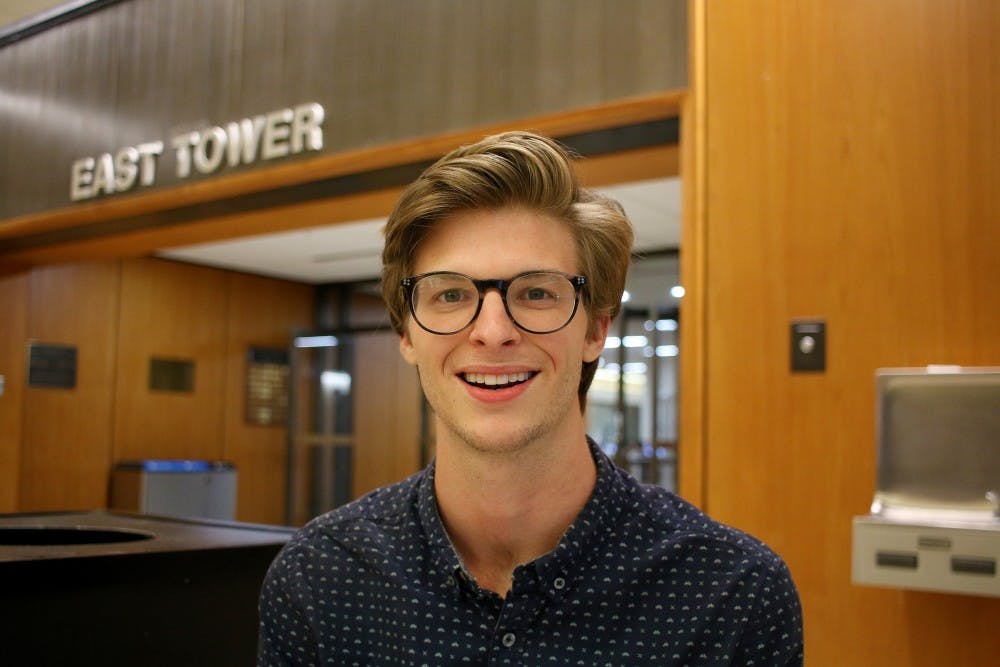What began as a small idea in an IU neuroscience lab is now an outreach program stretching across the state of Indiana. The Hoosier STARS Initiative is bringing IU undergraduates back into high school classrooms to educate students about the importance of science.
When Keiland Cooper was a freshman at IU, the professor in his neuroscience lab told him outreach was just as important science.
“I personally think outreach is a really important thing and I think that the more we as scientists engage in it, the better society will be in general,” assistant professor Ehren Newman said.
As a result, Cooper, along with others in the lab, created the Hoosier STARS Initiative, a program that brings IU undergraduate students to high schools across Indiana to teach students about science and the benefits of research.
STARS stands for students teaching about research and science.
Cooper, now a senior studying cognitive science and neuroscience, created the program three years ago. During this time the STARS have traveled to five different high schools and reached almost 250 students across the state.
“The high schools we choose are usually the high schools we went to, which is really cool,” Cooper said. “It’s also really cool when you’re in front of the students and can say ‘hey I sat in that seat 3 years ago.’”
When the STARS get in front of a classroom, Cooper said the presentation is in three parts. They begin with an introduction where the undergraduates tell stories of how they got involved in research, then work with the high schoolers on a hands-on experiment and conclude with a question-and-answer session.
“We’re trying to promote the idea that there’s opportunities in college beyond your traditional classroom experience and that this is something you can get if you come to a research university like Indiana,” Newman said.
Newman runs the neuroscience lab where the Hoosier STARS Initiative began. Cooper is the program director, and other undergraduates in the lab participate when they can.
Newman said there are about 16 undergraduates currently working in the lab, and at least eight students regularly involved in the Hoosier STARS initiative.
Not only does the program benefit the high school students, Cooper said, but it is also a valuable learning experience for the undergraduates. Through this program, Cooper said the undergraduates are learning that outreach and lab work are equally important in research.
“You can’t have one without the other," Cooper said. "It’ll kind of build that connection more between the public and the scientists.”
Cooper said feedback from the high school teachers and students has been better than expected. He said teachers are excited to have their old students come back and the high schoolers are interested in what they have to say.
“Literally anything a student can do that’s not the normal lesson is fun, even if it’s a quiz,” Cooper said. “If it’s a quiz that we give them, it’s a fun quiz.”
The program is currently focused in neuroscience, but he said the goal is to make this initiative something that all branches of academia can use. Cooper said he could even think of a history version of the program.
“The goal is to have this template and give it to any lab, or really anybody to kind of plug their own spin into it and then do the same thing,” Cooper said.
Although the program is still growing, Newman said he is happy with the progress they’ve made, and has already seen firsthand the effect they've had on high school students. He has received multiple follow up emails from IU students who had been in the audience of a Hoosier STARS presentation in high school.
“We make it very specifically one of our goals to help them understand how to get involved in research if they wanted to whether now or when they get to college,” Newman said.
Although he pushed for the creation of the program, Newman said he leaves the leadership role to Cooper. He said he wants the outreach work to be done completely by the students so that they can be proud of their accomplishments.
“I want them to know that it was them,” Newman said. “When they come back from a school, the reason why the students in the classroom were so excited by the presentation was because of what they did."




